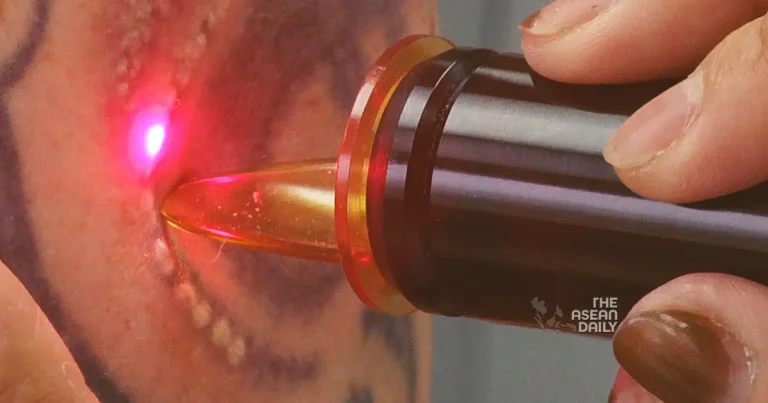1-4-2024 (JAKARTA) Bima Abdul Sholeh, 32, sat composedly as a doctor, armed with a laser pointer, meticulously zapped tattoos from his face at an event in Jakarta organised by a charity organisation during the holy month of Ramadan, providing practicing Muslims with an opportunity to seek “repentance”.
Joining him, over a hundred Indonesians have enrolled for tattoo removal procedures, provided free of charge by the Amil Zakat National Agency, an Islamic charity organisation, during Ramadan, which falls between early March and April this year.
“Ramadan serves as the perfect occasion for this initiative. The act of removing tattoos is a form of devotion to Allah,” stated Raja Zamzami, the coordinator of the event now in its fourth consecutive year. “These individuals realise their need for repentance… to break away from their past lifestyles and mistakes.”
Tattoos are deemed forbidden in Islam due to their categorisation as a form of physical mutilation of the skin. Despite Indonesia’s predominantly Sunni Muslim population of 220 million, who largely follow a more moderate interpretation of Islam, tattoos are viewed unfavourably due to their association with rough street lifestyles.
“At a certain point, I pondered, what’s the purpose of this (rough lifestyle)? There’s no end to it. I made the decision to repent,” shared Bima, as he readied himself to pray in his apartment following one of his removal sessions.
Bima is undergoing the removal of tattoos from his body and face as part of his transition away from his former life, the details of which he chose to keep private. “I ceased engaging in wrongful activities,” he affirmed.
Nila Novian, 24, who was having a small tattoo of an initial in silver on her forearm removed, expressed that for her, erasing it was “more about avoiding negative public stigma”.




